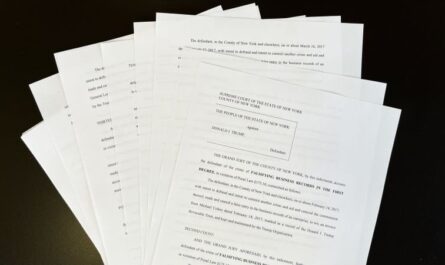Introduction
Defamation in the workplace can be a devastating experience for both employees and employers. When false statements are made that harm someone’s professional reputation, they can cause long-term consequences, both legally and personally. Understanding the legal implications of defamation in the workplace is essential for maintaining a safe, respectful, and professional environment.
In this article, we will explore the legal ramifications of defamation, the types of defamatory actions that can occur in the workplace, the defenses available to those accused of defamation, and the remedies for those harmed by defamation.

Understanding Defamation in the Workplace
Defamation is the act of making false and damaging statements about someone that harm their reputation. It can take many forms, including slander (spoken defamation) and libel (written defamation). In the workplace, defamation often occurs through false rumors, malicious gossip, or even written communications like emails or social media posts. Regardless of the form, defamation can severely affect an employee’s career and a company’s reputation.
Workplace defamation can lead to significant legal consequences, including lawsuits, financial damages, and long-term harm to the company’s reputation. Employees who have been falsely accused may face challenges in their personal and professional lives, and employers could be held liable for not addressing defamation claims appropriately.
Types of Defamation in the Workplace
Defamation in the workplace typically falls into two categories: slander and libel. Both types involve false statements made with the intention of harming someone’s reputation, but they differ in the medium through which the defamatory statements are made.
- Slander: This form of defamation involves spoken false statements that damage someone’s reputation. For example, if an employee spreads a rumor about a colleague being involved in illegal activities, it could be classified as slander.
- Libel: Unlike slander, libel refers to false statements made in a written or published format. This could include false statements made in emails, company memos, or even on social media platforms.
Both types of defamation can be equally damaging and may result in legal repercussions for the person making the false statements and the employer if they fail to address the issue properly.
The Legal Consequences of Defamation in the Workplace
Defamation in the workplace can have serious legal consequences. If an employee or employer is found guilty of making defamatory statements, they could be held liable for damages. The victim of defamation can file a lawsuit seeking compensation for the harm done to their professional reputation, mental well-being, and career prospects.
In many cases, the victim of defamation can seek financial compensation through a civil lawsuit. The damages awarded may include monetary compensation for the loss of income, emotional distress, and any harm to the individual’s professional relationships. In severe cases, punitive damages may be awarded to punish the defendant for malicious actions.
Employers can also face legal liability if they fail to address defamatory behavior in the workplace. In some instances, employer negligence may result in the company being held responsible for defamation claims made by employees. Employers have a duty to ensure that their workplace remains free from harassment, false accusations, and defamatory actions.
Defamation Defenses in the Workplace
If you are accused of making defamatory statements in the workplace, there are several defenses available. Understanding these defenses can help protect your rights if you are falsely accused of defamation.
- Truth as a Defense: If the statement you made is true, then it is not considered defamatory, regardless of how harmful it may be to the person’s reputation. Truth is a complete defense to a defamation claim.
- Privilege: In some situations, you may be protected by privilege. This legal concept applies to statements made in certain contexts, such as during employment-related investigations or legal proceedings. Privilege protects individuals from defamation claims when they make statements in good faith as part of their duties.
- Opinion Defense: If the statement made is clearly an opinion rather than a factual assertion, it may not be considered defamatory. However, the opinion must not be presented as a statement of fact.
- Qualified Privilege: This defense applies when a person makes a statement in a setting where there is a legal or social obligation to do so, such as reporting misconduct in the workplace.
Remedies for Defamation in the Workplace
If you have been harmed by defamation in the workplace, there are several remedies available to restore your reputation and seek justice.
- Reputation Repair: Legal action can help restore your professional reputation by forcing the defamatory statements to be retracted or corrected. In some cases, a court may order a public apology or correction of the false statements.
- Monetary Compensation: In addition to restoring your reputation, you may be entitled to monetary compensation for the harm caused by the defamatory statements. This can include compensation for loss of income, emotional distress, and any long-term damage to your career.
- Injunctions: In cases where defamation continues to occur, a court injunction can be sought to prevent further defamatory actions. This may include stopping the spread of false statements or prohibiting the individual from making defamatory statements about you in the future.
- Employment Dispute Resolution: If the defamation occurred within the workplace, employers should take steps to resolve the issue promptly. This may involve mediation, disciplinary action against the individual responsible for the defamation, or other forms of conflict resolution.
Conclusion
The legal ramifications of defamation in the workplace are far-reaching and can significantly affect the individuals involved, whether they are the victim or the accused. Understanding the types of defamation, the legal defenses available, and the remedies for victims is crucial for maintaining a professional and respectful work environment. Employers should take steps to prevent defamation in the workplace by promoting a culture of respect and addressing any claims of defamation swiftly and fairly.



